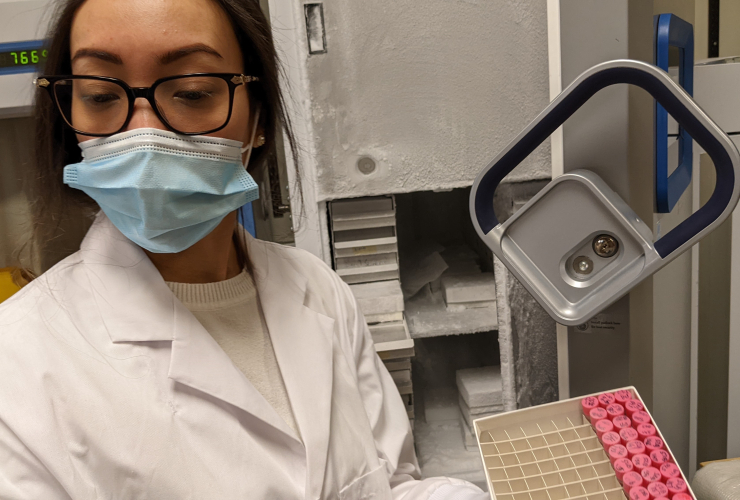While Hansel Igbavboa had been interested in his family’s farming heritage from a very young age, it was not until he got to a Toronto university campus that he first found initiatives that would reconnect him with the land.
Igbavboa is now in post-production with a documentary film he directed and co-produced called Future Farmers, which he says is “about how Black people shift and shape our food systems” and seeks to boost a conversation about how to achieve Black food sovereignty.
“It looks like a blooming flower,” the 24-year-old said of a growing movement to reimagine food production and consumption that young people have become more interested and involved in over recent years.
Due to be released later this year, he says people across the country have already expressed interest in hosting community screenings and discussion at launch.
Igbavboa, who also works for FoodShare Toronto on its right to food campaign, says he wants more Black youth to know there is so much that can be done and that food work goes beyond economic benefit.
“It’s a space for healing, it’s a space for a connection back to nature,” he said in an interview with Canada’s National Observer.
“It’s a space for Black folks to reconnect to their Indigeneity because a lot of folks have been disconnected from that for many reasons, whether they be descendants of enslaved people or children of immigrants,” he said.
Black families in Toronto are 3.5 times more likely than white families to be food-insecure, the city said in the Black Food Sovereignty Plan it released late last year, North America's first municipally supported and community-driven effort to address the issue.
High levels of food insecurity are linked to an increased risk of developing chronic diseases such as diabetes, asthma, cardiovascular disease and depression, and food-insecure populations are also more vulnerable to COVID-19.
Despite making up just nine per cent of Toronto’s population, Black residents accounted for 26 per cent of COVID-19 cases in the city and 24 per cent of COVID-19 hospitalizations in winter 2021.

Igbavboa said the subjects the film profiles often work in obscurity, and he was honoured many of them also shared their frustrations about the obstacles they face in trying to improve health outcomes for their communities.
“There is this tendency to view Black people as this never-ending machine that just gives, and that, in a sense, takes parts of our humanity out of us,” he said, noting that was a function of history and “we continue to have to do that because we're still facing the ramifications and the aftermath and, honestly, the perpetual violence of colonialism and racism and slavery.
“We get tired, we get exhausted, we get frustrated, and I think that’s a very important element in the film,” he said.
Igbavboa came to Canada at age 17, having grown up in a Nigerian city that features more trees and other natural assets than Toronto but less connection to the land than the village of his maternal grandmother, who grew food.
He’s also involved in another project, the Black Youth Farming Collective, which under the guidance of Debiiey Dunn and Julian Hasford has developed a demonstration farm in Brampton that last summer employed around a dozen Black youth, teaching them about holistic health and reconnecting them with nature and their ancestry.
“Initiatives like that really give me hope for the future of Black food sovereignty,” he said.
Morgan Sharp / Local Journalism Initiative / Canada’s National Observer






Comments